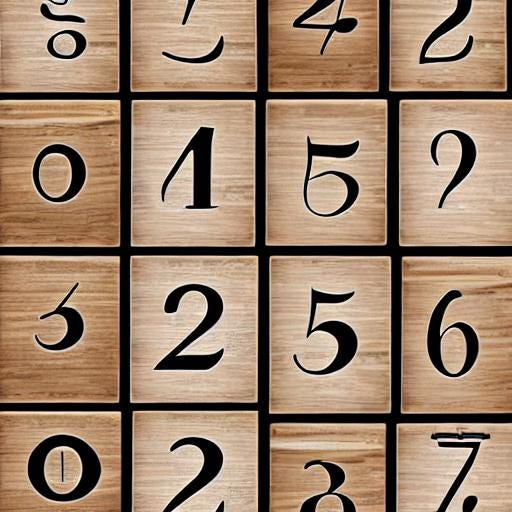Numerology
Numerology is an ancient practice that is rooted in the belief that numbers hold immense power and significance in our lives. The origins of numerology can be traced back to ancient civilizations like the Greeks and the Egyptians who used numbers as a way to understand the world around them.
The Greek philosopher Pythagoras is often credited with being the father of numerology. He believed that numbers represented more than just quantities, but also had symbolic meanings and spiritual significance. Pythagoras taught that all things in the universe were connected through numbers, and that by understanding these connections, one could gain a deeper understanding of the universe and their place within it.
Over time, numerology spread to other cultures and took on various forms. In the Middle Ages, for example, numerology was used in a more mystical way to predict the future and gain insights into important events.
Today, numerology is still a popular practice, with many people using it to gain insight into themselves and their lives. While some people view numerology as a form of divination or mysticism, others see it as a way to better understand the patterns and cycles of life. Whatever your views on numerology may be, there's no denying that numbers hold a unique and powerful place in our lives.
The key principles of Numerology
The key principles of numerology include the belief that each number holds a specific energy or vibration, and that these energies can be used to gain insight into various aspects of life. Numerologists assign numerical values to letters and words, then use these values to analyze names, birth dates, and other important numbers in a person's life.
One principle of numerology is that every number has a unique meaning and significance, and can be used to uncover information about a person's personality, strengths, weaknesses, and life path.
For example, the number 1 is often associated with independence, leadership, and creativity, while the number 7 is linked to spirituality, introspection, and intuition.
Another principle of numerology is the idea of numerological cycles, which suggest that our lives move through predictable cycles of growth and change. By understanding these cycles and the energies associated with them, we can better navigate the challenges and opportunities that come our way.
Overall, numerology is based on the belief that numbers are more than just mathematical symbols, but also hold deep spiritual and symbolic meaning. By understanding these meanings, we can tap into the power of numbers to gain insights into ourselves, our relationships, and the world around us.
Pythagoras and numbers
Pythagoras was a Greek philosopher and mathematician who is often credited with being the father of numerology. He believed that numbers held immense power and were the building blocks of the universe. Pythagoras believed that all things in the universe could be understood through numbers, and that understanding these numbers was key to unlocking the mysteries of life.
Pythagoras taught that numbers represented more than just quantities, but also held symbolic and spiritual significance. He believed that each number had a unique vibration and energy that could be used to gain insights into various aspects of life. Pythagoras also believed in the concept of numerological cycles, and taught that our lives moved through predictable cycles of growth and change.
Overall, Pythagoras believed that numbers were the key to understanding the universe and our place within it. He saw numbers as a way to connect with the divine and gain a deeper understanding of ourselves and the world around us. His teachings on numerology have had a lasting impact on the field, and continue to be studied and practiced today.
Numbers and Sacred Geometry
In addition to numerology, Pythagoras was also known for his work in sacred geometry. He believed that there was a sacred order and harmony to the universe and that this order could be understood through geometric shapes and patterns.
Pythagoras saw geometric shapes as a way to connect with the divine and gain insight into the nature of reality. For example, he believed that the triangle represented the trinity of the universe, and that the circle represented unity and completeness.
Pythagoras also believed that the study of shapes and patterns could be used to improve our understanding of architecture, music, and even medicine. His teachings on sacred geometry continue to influence these fields today.
Overall, Pythagoras saw numbers and shapes as powerful tools for understanding the universe and our place within it. His teachings on numerology and sacred geometry have had a lasting impact on mathematics, philosophy, and spirituality, and continue to inspire seekers of knowledge and wisdom to this day.
In our next Moot, we will explore the topic of Numerology and learn how to calculate and interpret your personal number-scope.
Alan /|\
Sign-Up to The School of Mystery and Magick and get access to recordings of Moots, eBooks and a collection of video documentaries on Magick and Mystery themes,
Find Out More Here
https://www.elynbres.com/school-of-mystery-magick





